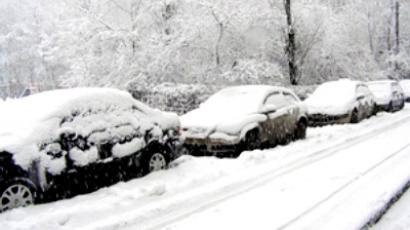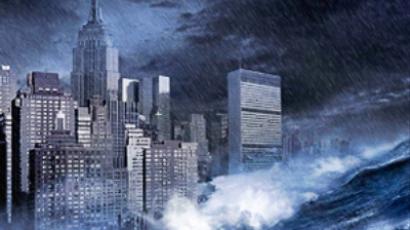Wildfires in Russia devastate forests and pockets
Firefighters in Russia say they have turned the corner in their battle against hundreds of wildfires that have been raging across the country.
The areas ablaze are steadily shrinking after weeks of endeavor against the ferocious flames, triggered by a record heat wave in the country's central regions.
The blazes have killed more than 50 people and destroyed entire villages, leaving thousands displaced.
The Moscow Region has been one of the worst hit, with choking smog from the fires shrouding the capital.
Although Moscow has been clear of smog for the past few days and has returned to breathing normally once again, the smell of burning still lurks in the air.
This summer’s wildfires in Russia differ from those in previous years.
The disaster was not only widespread, but highly visible, especially in the capital.
A blanket of smoke covered Moscow for several weeks – and so too did it envelop the country’s economy.
Russian President Dmitry Medvedev noted the fact that “The situation is very severe, as about a quarter of all grain fields in the country have dried out as the result of the drought. Unfortunately, many farms are now on the verge of bankruptcy. The government has already agreed to provide financial help to the agricultural producers who are faced with hard times.”
The government responded by banning wheat exports until the end of the year, a move which sent world grain prices to their highest for two years.
Senior Global economist at HSBC Karen Ward warned, “The danger is that given we have being in 2007-2008 and we saw wheat prices proceed and rises in other prices of commodities, the danger is that financial markets start to anticipate price rises for other commodities and that actually causes a more general food price spike.”
The short-term effects of the wildfires have been quickly reflected in he price tags of some essential foods. And while customers can already feel how much thinner their wallets have become this summer, the long-term effects of the catastrophe are still to be evaluated.
Over 50 people have died in the fires, while the death rate in other smog-shrouded regions has doubled. At its height in Moscow alone, some 700 people were dying each day.
The long-term effect on the health of others will not be known for years.
According to American meteorologist Jeff Masters from the Weather Underground website, “When you have forest fires, you are not only having smog but you also have carbon monoxide and you got small particles which are ingested in the lungs and cause breathing problems.”
The country's ecological lungs are badly damaged, too. 800,000 hectares of forests caught fire – an area the size of Cyprus.
“Yes, they could be planted, but It will take a long time for those forests to grow,” meteorologist Vadim Zavodnishkov anticipated. “It will take several decades to make up for this loss. We have lost the lungs of the Moscow Region. I mean the woods contributing to air purification and oxygen production, which is a considerable blow against the environment of the metropolis.”
What took decades to grow has been obliterated in one, long hot summer.
Now, Russians are wondering whether the unusually high temperatures are just a freak of nature, or if they herald a time when Moscow will not just be known for its freezing winters, but for its scorching summers as well.














